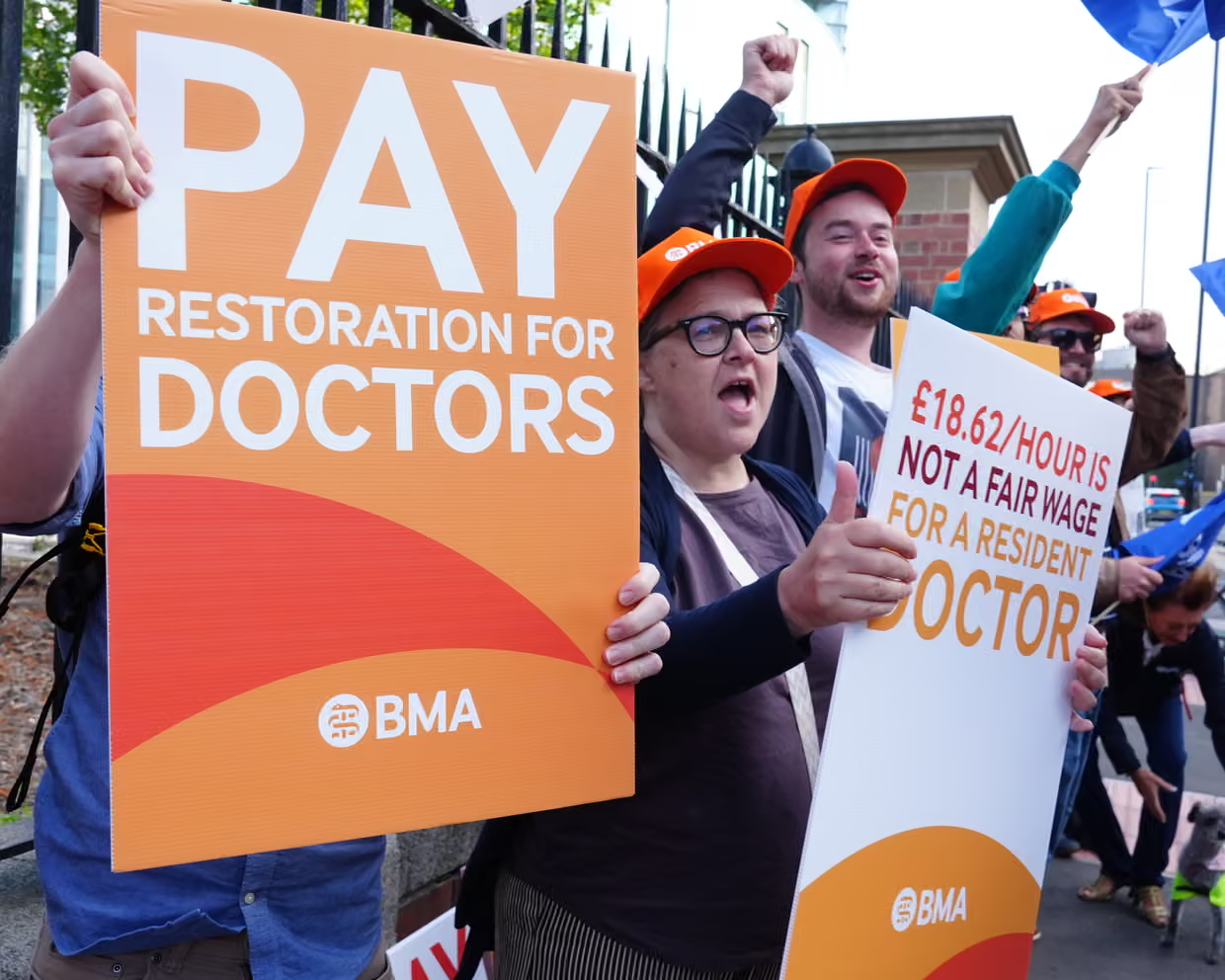

Resident doctors in England have announced five days of strike action, reigniting tensions that go far beyond a dispute over pay. From 14 to 19 November, the walkout will signal growing anger over the government’s failure to provide stable jobs and a realistic pay plan for the doctors the NHS depends on.
Dr Jack Fletcher, chair of the British Medical Association’s Resident Doctors Committee, said the decision to strike was made “with regret, not resolve.” After a week of talks with the Department of Health, he said the government had failed to grasp the scale of the problem: newly qualified doctors unable to find work while hospitals remain short-staffed and millions of patients wait for care.
“It is a scandal,” Fletcher said. “Half of second-year doctors in England are struggling to find jobs, their skills going to waste while shifts go unfilled. We cannot go on like this.”
The BMA’s proposal to government included a gradual pay restoration plan, reversing years of real-terms cuts, alongside new commitments to expand training and employment opportunities. The offer would have meant only a small rise, about a pound an hour, spread across four years, but doctors hoped it would signal a genuine start toward rebuilding trust.
Instead, Fletcher said, ministers responded with vague commitments to review jobs and training “two years from now,” a delay that has fuelled further frustration. “We want to get a deal done,” he said. “But the government’s response shows little understanding of the crisis we are living through right now.”
For the workforce, this latest dispute represents more than a battle over pay scales. It reflects a deeper erosion of faith in the system’s ability to value, retain, and protect its future clinicians. Many newly trained doctors are already leaving the NHS for roles abroad, citing better pay, structured career paths, and less burnout.
Health Secretary Wes Streeting has repeatedly acknowledged the scale of the workforce challenge, but the BMA says words are no longer enough. Fletcher urged the government to make “concrete offers” that restore pay, expand jobs, and show a commitment to doctors’ long-term future in the health service.
“Wes Streeting inherited an NHS that has been hollowed out,” he said. “But he now has the chance to rebuild it . To make it a place where doctors can stay, grow, and serve.”
The upcoming strike is a symptom of that unfinished business. For many doctors, it is no longer about protest, but about survival in a system that seems to have forgotten how to look after its own. If the NHS cannot offer meaningful work and fair pay to those it trains, it risks losing not just a generation of doctors, but the future of the service itself.